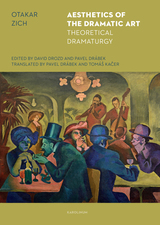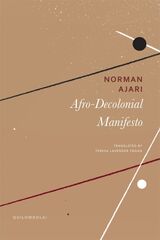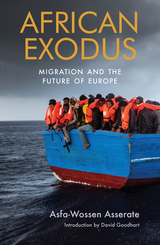
Asfa-Wossen Asserate argues here that building higher fences or finding more effective methods of integration will only, in the long term, perpetuate rather than solve the problems associated with these large numbers of displaced refugees. We need to realize that we are only treating the symptoms of an oncoming catastrophe and that, if we are to respond to mass migration, we will ultimately have to understand its causes. African Exodus places its emphasis firmly on the causes of the refugee crisis, which are to be found not least in Europe itself, and charts ways in which we might deal with it effectively in the long term.
In the course of this analysis, Asserate asks why our view of Africa—a troubled continent, but rich in so many ways—is so distorted. How can we combat the corrupt, authoritarian regimes that stymie progress and development? Why are millions fleeing to Europe? How is the EU complicit in the migration crisis? And finally, in practical terms: what can be done, and what prospects does the future hold?
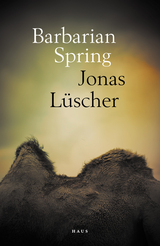
So begins Barbarian Spring, the debut novel from Jonas Lüscher, a major emerging voice in European fiction. The timely and unusual novel centers on a culture clash between high finance and the value system of the Maghreb. Provocative and entertaining, Barbarian Spring is a refreshingly original and all-too-believable satire for our times.
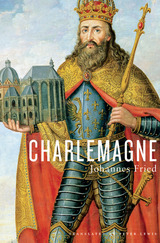
When Charlemagne died in 814 CE, he left behind a dominion and a legacy unlike anything seen in Western Europe since the fall of Rome. Distinguished historian and author of The Middle Ages Johannes Fried presents a new biographical study of the legendary Frankish king and emperor, illuminating the life and reign of a ruler who shaped Europe’s destiny in ways few figures, before or since, have equaled.
Living in an age of faith, Charlemagne was above all a Christian king, Fried says. He made his court in Aix-la-Chapelle the center of a religious and intellectual renaissance, enlisting the Anglo-Saxon scholar Alcuin of York to be his personal tutor, and insisting that monks be literate and versed in rhetoric and logic. He erected a magnificent cathedral in his capital, decorating it lavishly while also dutifully attending Mass every morning and evening. And to an extent greater than any ruler before him, Charlemagne enhanced the papacy’s influence, becoming the first king to enact the legal principle that the pope was beyond the reach of temporal justice—a decision with fateful consequences for European politics for centuries afterward.
Though devout, Charlemagne was not saintly. He was a warrior-king, intimately familiar with violence and bloodshed. And he enjoyed worldly pleasures, including physical love. Though there are aspects of his personality we can never know with certainty, Fried paints a compelling portrait of a ruler, a time, and a kingdom that deepens our understanding of the man often called “the father of Europe.”
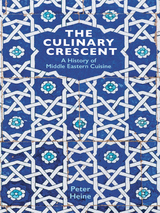
In The Culinary Crescent: A History of Middle Eastern Cuisine, Peter Heine combines years of scholarship with a personal passion: his knowledge of the cookery traditions of the Umayyad, Abbasid, Ottoman, Safavid, and Mughal courts is matched only by his love for the tastes and smells produced by the contemporary cooking of these areas today. In addition to offering a fascinating history, Heine presents more than one hundred recipes—from the modest to the extravagant—with dishes ranging from those created by the “celebrity chefs” of the bygone Mughal era, up to gastronomically complex presentations of modern times.
Beautifully produced, designed for both reading and cooking, and lavishly illustrated in color throughout, The Culinary Crescent is sure to provide a delectable window in the history of food in the Middle East.
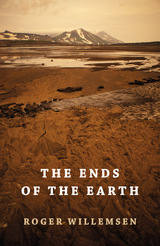

In Eric Warburg, Jeanette Erazo Heufelder tells the story of the nephew of the art historian Aby Warburg, whose world-famous library Eric saved from the Nazis. He was a Jew, a banker, a helper of escapees, an intelligence officer in the US Army, a transatlantic bridge builder, and a Cold Warrior. With the help of the cooperation channels he set up, West German and US social groups were aligned with the West amidst the turmoil of postwar Europe.
The history of the transatlantic partnership has become highly topical; since the Russian invasion of Ukraine on February 24, 2022, it has been invoked in Europe as a key reassurance. Eric Warburg’s life, and that of Aby Warburg’s library, tells the story of Europe's twentieth century, the legacy of which continues to inform and inspire the transatlantic partnership today.
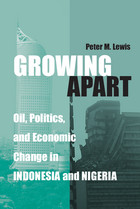
"Growing Apart is an important and distinguished contribution to the literature on the political economy of development. Indonesia and Nigeria have long presented one of the most natural opportunities for comparative study. Peter Lewis, one of America's best scholars of Nigeria, has produced the definitive treatment of their divergent development paths. In the process, he tells us much theoretically about when, why, and how political institutions shape economic growth."
—Larry Diamond, Senior Fellow, Hoover Institution
"Growing Apart is a careful and sophisticated analysis of the political factors that have shaped the economic fortunes of Indonesia and Nigeria. Both scholars and policymakers will benefit from this book's valuable insights."
—Michael L. Ross, Associate Professor of Political Science, Chair of International Development Studies, UCLA
"Lewis presents an extraordinarily well-documented comparative case study of two countries with a great deal in common, and yet with remarkably different postcolonial histories. His approach is a welcome departure from currently fashionable attempts to explain development using large, multi-country databases packed with often dubious measures of various aspects of 'governance.'"
—Ross H. McLeod, Editor, Bulletin of Indonesian Economic Studies
—Nicolas van de Walle, John S. Knight Professor of International Studies, Cornell University
Peter M. Lewis is Associate Professor and Director of the African Studies Program, Johns Hopkins University, School of Advanced International Studies.
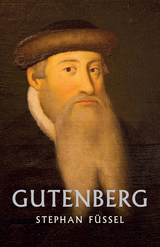
Gutenberg’s technical innovations remained unrivalled for almost 350 years, until industrialization of the printing industry and the digital revolution built on the advances that he began, increasing the rate at which information is spread. Despite his significance in forming the world as we know it, there has not yet been a rigorous and accessible biography of Gutenberg published in English. Written by the leading expert on Gutenberg, Füssel’s biography brings together high academic standards and thorough historical details in a highly readable text that conveys everything you need to know about the man who changed printing forever.
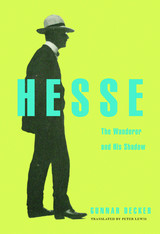
A deftly crafted biography of the author of Siddhartha, whose critique of consumer culture continues to inspire millions of readers.
Against the horrors of Nazi dictatorship and widespread disillusionment with the forces of mass culture and consumerism, Hermann Hesse’s stories inspired nonconformity and a yearning for universal values. Few today would doubt Hesse’s artistry or his importance to millions of devoted readers. But just who was the author of Siddhartha, Steppenwolf, and Demian?
Gunnar Decker weaves together previously unavailable sources to offer a unique interpretation of the life and work of Hermann Hesse. Drawing on recently discovered correspondence between Hesse and his psychoanalyst Josef Lang, Decker shows how Hesse reversed the traditional roles of therapist and client, and rethinks the relationship between Hesse’s novels and Jungian psychoanalysis. He also explores Hesse’s correspondence with Stefan Zweig—recently unearthed—to find the source of Hesse’s profound sense of alienation from his contemporaries.
Decker’s biography brings to life this icon of spiritual searching and disenchantment who galvanized the counterculture in the 1960s and feels newly relevant today.
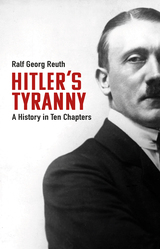
Hitler’s tyranny is still difficult to understand today. In this book, Ralf Georg Reuth examines ten aspects of this catastrophe. Among other things, he asks: Was anti-Semitism more pronounced in Germany than elsewhere? Was Versailles really responsible for Hitler’s rise and why did the Germans follow a racial fanatic like him? How did his war differ from all others before it? The disturbing answers provide an overall picture that shows Hitler was not the consequence of the depths of German history, but the result of chance, deception, and seduction.
This thought-provoking new study takes aim at several of the norms of Hitler scholarship from the past forty years. Reuth interrogates and challenges a range of orthodox views on such topics as how mainstream politicians facilitated Hitler’s rise to power, the Führer’s infamous pact with Stalin, and the complicity of ordinary Germans in his genocidal tyranny. Eschewing a conventional chronological approach in favor of a forensic analysis of Hitler’s mainsprings of action both as chancellor and military commander, Reuth portrays Hitler as the apotheosis of what he argues is a specifically German strain of militarism and imperialism, shifting the focus firmly back to the mindset and modus operandi of Hitler himself. The portrait that emerges is one of a murderous fantasist and political opportunist driven by an all-embracing ideology of racial superiority. Reuth’s account courts controversy on a number of points and offers a fascinating counterpoint to much recent scholarship.
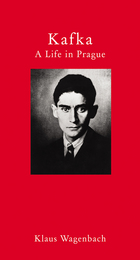
Drawing from a range of documents and historical materials, this is the first book specifically dedicated to the relationship between Kafka and Prague. Klaus Wagenbach’s account of Kafka’s life in the city is a meticulously researched insight into the author’s family background, his education and employment, his attitude toward the town of his birth, his literary influences, and his relationships with women. The result is a fascinating portrait of the twentieth century’s most enigmatic writer and the city that provided him with so much inspiration. W. G. Sebald recognized that “literary and life experience overlap” in Kafka’s works, and the same is true of this book.
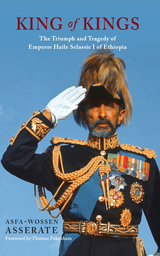
Written by Asfa-Wossen Asserate, Haile Selassie’s grandnephew, this is the first major biography of this final “king of kings.” Asserate, who spent his childhood and adolescence in Ethiopia before fleeing the revolution of 1974, knew Selassie personally and gained intimate insights into life at the imperial court. Introducing him as a reformer and an autocrat whose personal history—with all of its upheavals, promises, and horrors—reflects in many ways the history of the twentieth century itself, Asserate uses his own experiences and painstaking research in family and public archives to achieve a colorful and even-handed portrait of the emperor.

Distinguished historians of the ancient world analyze the earliest developments in human history and the rise of the first major civilizations, from the Middle East to India and China.
In this volume of the six-part History of the World series, Hans-Joachim Gehrke, a noted scholar of ancient Greece, leads a distinguished group of historians in analyzing prehistory, the earliest human settlements, and the rise of the world’s first advanced civilizations.
The Neolithic period—sometimes called the Agrarian Revolution—marked a turning point in human history. People were no longer dependent entirely on hunting animals and gathering plants but instead cultivated crops and reared livestock. This led to a more settled existence, notably along rivers such as the Nile, Tigris, Euphrates, Ganges, and Yangzi. Increased mastery of metals, together with innovations in tools and technologies, led to economic specialization, from intricate crafts to deadlier weapons, which contributed to the growth of village communities as well as trade networks. Family was the fundamental social unit, its relationships and hierarchies modeled on the evolving relationship between ruler and ruled. Religion, whether polytheist or monotheist, played a central role in shaping civilizations from the Persians to the Israelites. The world was construed in terms of a divinely ordained order: the Chinese imperial title Huangdi expressed divinity and heavenly splendor, while Indian emperor Ashoka was heralded as the embodiment of moral law.
From the latest findings about the Neanderthals to the founding of imperial China to the world of Western classical antiquity, Making Civilizations offers an authoritative overview of humanity’s earliest eras.
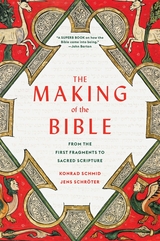
“The Making of the Bible is invaluable for anyone interested in Scripture and in the intertwined histories of Judaism and Christianity.”
—John Barton, author of A History of the Bible: The Book and Its Faiths
The authoritative new account of the Bible’s origins, illuminating the 1,600-year tradition that shaped the Christian and Jewish holy books as millions know them today.
The Bible as we know it today is best understood as a process, one that begins in the tenth century BCE. In this revelatory account, a world-renowned scholar of Hebrew scripture joins a foremost authority on the New Testament to write a new biography of the Book of Books, reconstructing Jewish and Christian scriptural histories, as well as the underappreciated contest between them, from which the Bible arose.
Recent scholarship has overturned popular assumptions about Israel’s past, suggesting, for instance, that the five books of the Torah were written not by Moses but during the reign of Josiah centuries later. The sources of the Gospels are also under scrutiny. Konrad Schmid and Jens Schröter reveal the long, transformative journeys of these and other texts en route to inclusion in the holy books. The New Testament, the authors show, did not develop in the wake of an Old Testament set in stone. Rather the two evolved in parallel, in conversation with each other, ensuring a continuing mutual influence of Jewish and Christian traditions. Indeed, Schmid and Schröter argue that Judaism might not have survived had it not been reshaped in competition with early Christianity.
A remarkable synthesis of the latest Old and New Testament scholarship, The Making of the Bible is the most comprehensive history yet told of the world’s best-known literature, revealing its buried lessons and secrets.
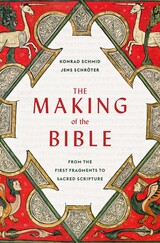
“A landmark…If you have time to read only one book on the Bible this year, make sure that it is this one.”—Katherine J. Dell, Church Times
“Excellent…With a sure touch, the authors lead the reader through the geopolitical context of the Hebrew Bible and the setting and background of the New Testament, finding something to say about practically every book’s origins and development.”—John Barton, The Tablet
“A remarkable deep dive into foundational books whose origins are often taken for granted.”—Publishers Weekly
In this revelatory account of the making of the foundational text of western civilization, a world-renowned scholar of the Hebrew scriptures joins a noted authority on the New Testament to reconstruct Jewish and Christian scriptural histories and reveal the underappreciated contest between them.
The New Testament, they show, did not develop in the wake of an Old Testament set in stone. The two evolved in parallel, often in conversation with each other, ensuring a continuing mutual influence of Jewish and Christian traditions. A remarkable synthesis of the latest Old and New Testament scholarship, The Making of the Bible is the most comprehensive history yet of the long, transformative journeys of these texts on route to inclusion in the holy books, revealing their buried lessons and secrets.
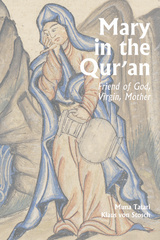
An entire chapter (surah) is dedicated to her, and she is the only woman mentioned by name in the Qur’an—indeed, her name appears more frequently than that of either Muhammad or Jesus. From the earliest times to the present day, Mary, the mother of Jesus, continues to be held in high regard by Christians and Muslims alike, yet she has also been the cause of much tension between these two religions.
In this groundbreaking study, Muna Tatari and Klaus von Stosch painstakingly reconstruct the picture of Mary that is presented in the Qur’an and show how veneration of the Blessed Virgin Mary in the Roman Catholic Church intersects and interacts with the testimony of the Qur’an. This sensitive and scholarly treatise offers a significant contribution to contemporary interfaith dialogue.
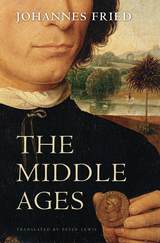
Since the fifteenth century, when humanist writers began to speak of a “middle” period in history linking their time to the ancient world, the nature of the Middle Ages has been widely debated. Across the millennium from 500 to 1500, distinguished historian Johannes Fried describes a dynamic confluence of political, social, religious, economic, and scientific developments that draws a guiding thread through the era: the growth of a culture of reason.
“Fried’s breadth of knowledge is formidable and his passion for the period admirable…Those with a true passion for the Middle Ages will be thrilled by this ambitious defensio.”
—Dan Jones, Sunday Times
“Reads like a counterblast to the hot air of the liberal-humanist interpreters of European history…[Fried] does justice both to the centrifugal fragmentation of the European region into monarchies, cities, republics, heresies, trade and craft associations, vernacular literatures, and to the persistence of unifying and homogenizing forces: the papacy, the Western Empire, the schools, the friars, the civil lawyers, the bankers, the Crusades…Comprehensive coverage of the whole medieval continent in flux.”
—Eric Christiansen, New York Review of Books
“[An] absorbing book…Fried covers much in the realm of ideas on monarchy, jurisprudence, arts, chivalry and courtly love, millenarianism and papal power, all of it a rewarding read.”
—Sean McGlynn, The Spectator
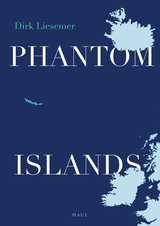
Beautifully illustrated with colored maps and charts, Phantom Islands shows the cunning of imposters and frauds, the earnestness of explorers searching for knowledge, and the pleasure that can be found in our willingness to deceive and to be deceived.

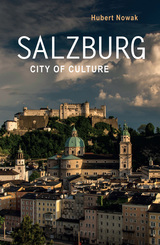
Situated in the shadow of the Eastern Alps, Salzburg is known for its majestic baroque architecture, music, cathedrals, and gardens. The city grew in power and wealth as the seat of prince-bishops, found international fame as the birthplace of the beloved composer Mozart, and expanded to become a global destination for travel as a festival city. With all its stunning sights and rich history, Salzburg has become Austria’s second most visited city, drawing visitors from around the world.
Hubert Nowak sets out to reveal the lesser-known side of Salzburg, a small town with international renown. Leaving the famed festival district, he plunges into the narrow façade-lined streets of the old quarter, creating one of the most extensive accounts of the city published in English. Through the stories of those who visited and lived in the city over the centuries, he gives the reader a fresh perspective and gives the old city new life.
READERS
Browse our collection.
PUBLISHERS
See BiblioVault's publisher services.
STUDENT SERVICES
Files for college accessibility offices.
UChicago Accessibility Resources
home | accessibility | search | about | contact us
BiblioVault ® 2001 - 2025
The University of Chicago Press



